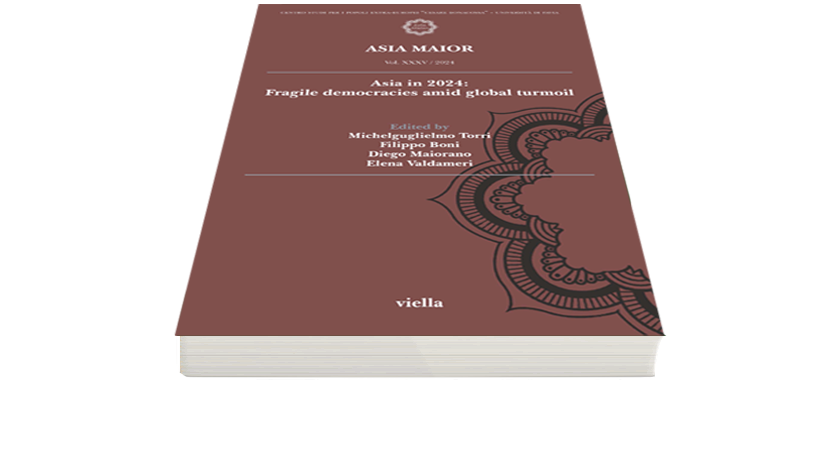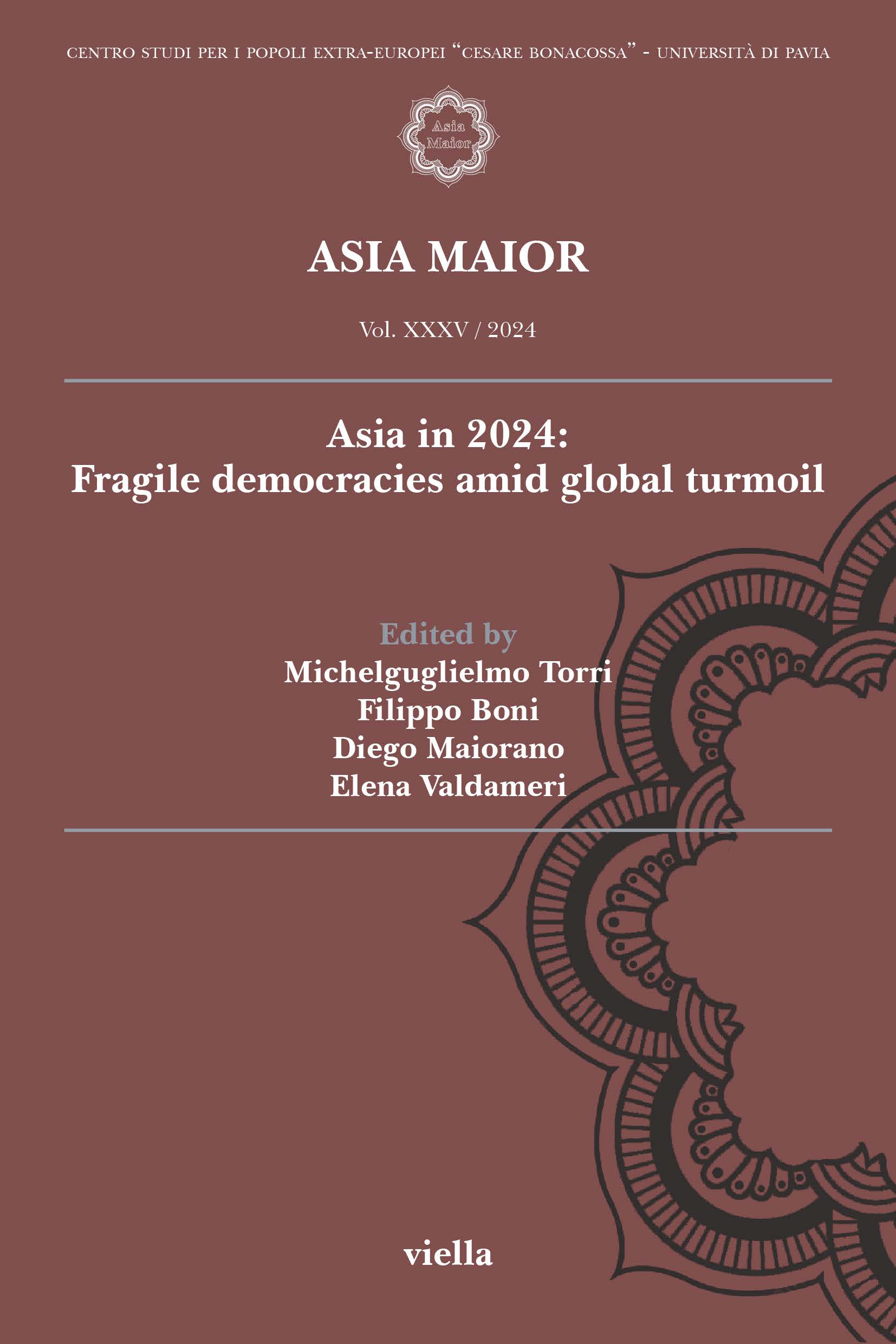The importance of China’s strategic culture in the Korean War
Available also in pdf – Download Pdf
Li Xiaobing, China’s War in Korea. Strategic Culture and Geopolitics, Singapore: Palgrave Macmillan, 2019, xvii + 245 pp. (ISBN 9789813296749).
The Korean War has customarily represented one of the most studied themes in the historiography of Cold War in the Asian continent. This gargantuan production has articulated in several directions: from the military, economic and political modifications that were originated by the war and simultaneously marked every single instant of the conflict on the Korean peninsula to the scrutiny of the dramatic social situation that both South and North Koreans were forced to endure; from the detailed investigation of the main protagonists’ public and recondite objectives to the complex use of propaganda. Any kind of analysis is equally important and has contributed to dramatically broaden the knowledge of the war, falling prey – from time to time – to ideological disputes aimed at demonstrating which of the two conflicting parties was «right». However, the most noteworthy lens to look at the conflict remains perhaps the «internationalist» one, which takes into consideration negotiations, strategies, tactics and reactions of those countries which ended up being involved, directly or indirectly, in the harsh conflict.
In this field, the investigation of the People’s Republic of China’s (PRC) leadership’s decision to actively intervene in the Korean conflict has attracted the interest of several scholars; after all, the real motivations behind Mao’s resolution to replenish the ranks of the North Korean army with Chinese militaries – changing the tide of the conflict – had to be carefully scrutinized. Against this background, the production of several Chinese scholars is undoubtedly remarkable: Jian Chen, Zhang Shu Guang, Xue Yan – just to name a few – have helped us to better understand the complexity of China’s Cold War experience, Beijing’s relationship with the Soviet Union, the «US threat» and the intimate correlation between the Korean War and the Taiwan issue, and the real nature of the so-defined «lips and teeth» amity between Beijing and Pyongyang. Despite being absolutely fundamental for the comprehension of the factors that moved the PRC’s leadership to join the conflict by supporting North Korea against the South and the strong Allied contingency, led by the Americans, many works in this field show a common flaw, that is their «orthodoxycal» character. Probably because of political reasons, in fact, several Chinese scholars prefer to follow the official line in their accounts of the reasons that pushed Mao to intervene in the Korean War: this deficiency in objectivity is a common trait that clearly emerges from numerous investigations.
Li Xiaobing, professor of History at the University of Central Oklahoma and very prolific scholar, has explored far and wide different aspects of China’s contemporary political history, focusing his attention on the unfolding of the Cold War in Asia and on Beijing’s involvement in both the Korean and the Vietnam conflicts.1 In his book, opportunely titled China’s War in Korea. Strategic Culture and Geopolitics, Li not only examines the Chinese involvement in the Korean conflict, by looking in depth at the reasons that convinced the leadership to assume the decision to join the conflict, but does that in a peculiar way, that is by focusing on the international scenario and, above all, on China’s defense strategy, that appears as the real «propulsive force» behind Beijing’s decision to send troops to Korea in 1950. What is extremely relevant in Li’s book is the fact that the author does not limit his analysis to international Cold War factors, but takes into account «China-centered factors» which are pivotally important to understand Chinese security and geopolitical concerns. In doing this, Li substantially subverts a consolidated scholarly position that explained China’s involvement in the Korean conflict as basically dependent on the ideological «fraternity» with the North Korean leadership and on the terror of falling prey of the seemingly unstoppable UN advance. Despite the validity of these factors, in fact, Li accurately focuses on the «proactive defense» strategy adopted by Mao (whose son, Mao Anying was killed in action by an air strike during the Korean conflict) to expand Chinese defensive parameter. This strategy, already used by China – as Li explains – in the Vietnam conflict, foresaw the provision of military assistance to belligerent nations (Vietnam and North Korea) in order to secure China’s borderlands for political legitimacy and secure the northeast of the country as its important industrial center. What needs to be highlighted is the fact that Li – unlike many other historians – describes China’s involvement in the Korean conflict as a crucial turning point in the modification of the country’s position in East Asia: the Korean War, in fact, was essential in restoring China’s centrality in the continent shaping favorable international condition in which Beijing could survive then and succeed today. This is absolutely not a marginal proposition, since it clarifies that China’s participation in the conflict contributed significantly to reshaping «post-WWII international relations»: in this sense, a fil rouge between the Chinese participation to the Korean War and today’s China can be effectively traced.
Throughout the six chapters (plus a conclusive one) that compose this book, Li poses his attention on several relevant issues, deciding not to limit himself to the analysis of the period of belligerency in Korea. After the clear opening represented by a solid theoretical section, the author focuses on the tributary system and the role China had at the very core of Asia until the radical transformation brought about by the Opium Wars and the rise of the Japanese imperial system. In doing this, he elucidates the importance the tributary system had for Korea and clarifies the strategic significance it had for China to create «buffer states» (a very popular «label» many uses nowadays to define North Korea in the view of Beijing) to protect itself and its boundaries. In the remaining four chapters, Li cautiously inspects the various stages of the Korean conflict from the Chinese perspective, emphasizing the idea of «proactive defense» which, according to him, was adopted – rather successfully – by the Chinese leadership in order to tackle UN forces into North Korea rather than «building air defenses, evacuating heavy industrial factories, and fighting a defensive war in Manchuria». Li wittily makes the reader realize that «Mao’s uncertainty of Manchuria’s defense in late September is one of the key factors behind his decision to fight the war in Korea». In the fifth chapter, however, the author discusses the Chinese leadership’s sharpness and promptness in understanding the different stages of the conflict: in particular, after having pushed the UN forces back (an offensive that costed to the Allies the control over Seoul), the last Chinese offensive turned out to be a real failure. Nonetheless, by realizing that his soldiers were incapable of ousting UN forces from the Korean peninsula, Mao accepted an advantageous settlement without total victory.
In sum, Li Xiaobing’s book not only sheds a fundamentally new light on the Chinese involvement in the Korean War, but it does that by looking at how the Chinese leadership reacted to the «stimulus» by relying on its strategic culture; in addition, what is particularly significant is the fact that the author highlights all those important achievements made by China at the end of the conflict (among others the revenge of a new international status; the modernization of the People’s Liberation Army; the consolidation and intensification of political control by the leadership) that have contributed to shape China as the country we all know today. This is an excellent contribution that deserves to be taken seriously into consideration for any future investigation on the Korean War, the Chinese involvement in that conflict and, generally speaking, on the vicissitudes and significance of the Cold War in Asia.
1. Among Li Xiaobing’s numerous publications on these topics see, for example, The Cold War in East Asia, Abingdon and New York: Routledge, 2017; Building Ho’s Army: Chinese Military Assistance to North Vietnam, Lexington: The University Press of Kentucky, 2019; Attack at Chosin: The Chinese Second Offensive in Korea, Norman: University of Oklahoma Press, 2020.









































